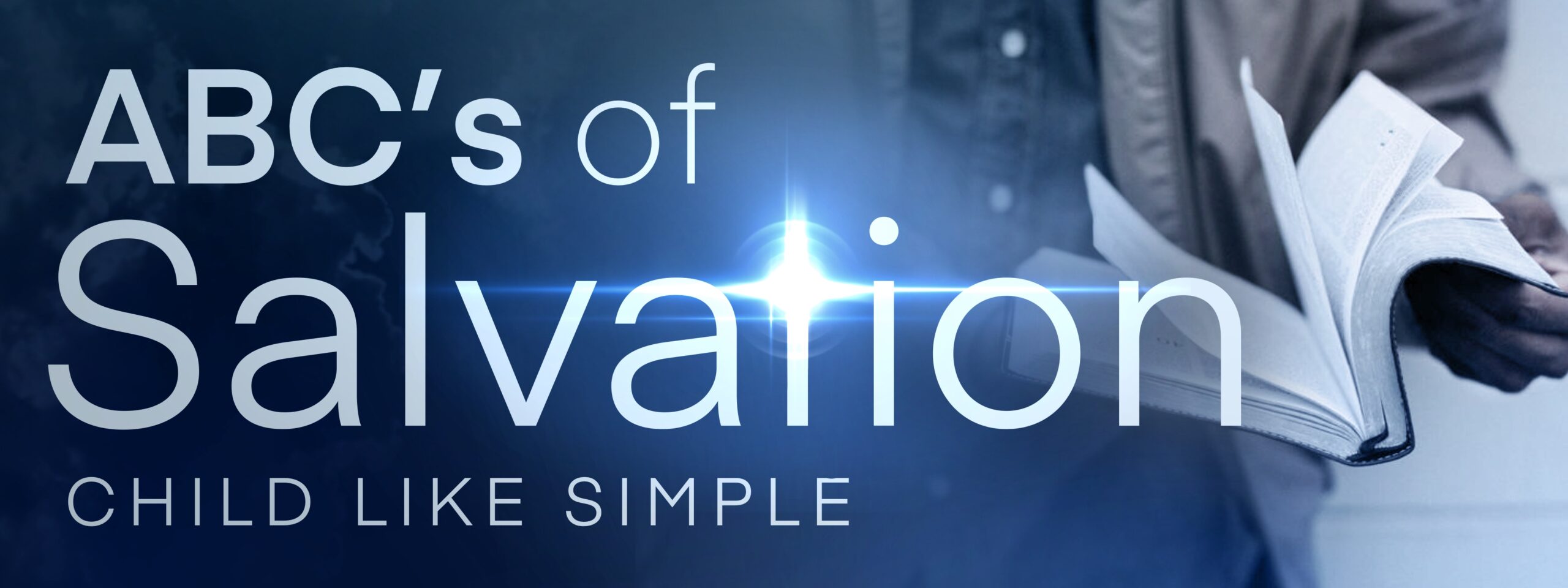“God is not man, that he should lie” (Numbers 23:19). This eternal truth of Scripture regarding the character of our holy God stands in sharp contrast to the blasphemous words of a Presbyterian (PCUSA) “pastrix” (yes, apparently that’s a word), professor, and author—Rebecca Todd Peters, who recently preached a sermon applying the lens of feminist theology to Genesis 3.
Before we get into what Peters said, I first want to [point to] the relevant passages of Genesis 2:16–17 and Genesis 3:1–7 so it is fresh in our minds. With that context in mind, let’s dive into Peters’ message.
Reinterpreting Scripture
During the nearly-four-minute clip of her message that was widely shared on social media, Peters explains her hermeneutic for reading the Bible.
Feminist theology has taught me how to reinterpret Scripture in ways that are healing and life-giving, and I refuse to allow conservative Christians or anyone else to take my God away from me.
As a feminist theologian, one of the things that gives me joy is reinterpreting texts that have been used to hurt or control people. Because the God that I know is full of light and life—because the God that I know holds me in my grief and walks with me in my pain, I know that the sacred Word of God is not a weapon nor should it ever be used to harm or shame people.
Her ultimate authority is not the Word of God—and she’s up-front about that! Her authority is herself and other “feminist theologians.” Really, she’s falling for the same old lie that Adam and Eve fell for: “Did God actually say . . . ?” and “You will be like God!” That’s what it means to reinterpret the Bible’s clear teachings in light of the fallible (and foolish) thinking of our day—it means putting yourself in authority over God and his Word. And the result is always a god in your own image (notice her wording: “my God” and “the God that I know”). She is confirming our sin nature as summed up in Genesis 3:1 and Genesis 3:5.
You’ll notice that while she calls the Scriptures “sacred,” she clearly doesn’t mean that, because she’s perfectly willing to twist and abuse the Scriptures to force in a feminist interpretation that completely upends the clear meaning of the text (as we shall see).
It’s also worth noting that she says, “The sacred Word of God is not a weapon,” when that is precisely what God’s Word calls itself (see Hebrews 4:12, Ephesians 6:12-18).
Yes, the Word of God is a weapon; it’s a two-edged sword that cuts through lies and error, exposes sin with the light of truth, and pierces consciences—pointing individuals to the only One who can save and redeem, Christ Jesus. It’s our weapon in this spiritual battle that God’s Word tells us we’re in.
And this is where what someone means by the words they say matters so much. She claims God’s Word should not be used to “harm or shame people,” but what does she mean by “harm” and “shame”? One of the very purposes of the Bible (especially the Law) is to convict of sin, which brings with it shame that drives us to repentance, and then that guilt and shame is removed through the cross of Christ as Jesus cleanses our hearts and presents us blameless before the Father. God’s Word is designed to convict us of our unrighteousness by showing us God’s perfect, holy standard (see 2 Timothy 3:16-17, Romans 7:7-12, and Romans 3:20)!
God Lied to Eve?
With her feminist theology interpretive lens firmly in place, Peters begins a radical reinterpretation of the account of the fall in Genesis 3.
Despite two millennia of misogynistic interpretations of Genesis and Eve, there have always been other ways to read this story. I love the story of Eve in the garden. . . . When we look at it with fresh eyes, it’s quite a remarkable story.
Notice her use of “story”—as you listen to her message. It’s quite apparent that she doesn’t take Genesis as literal, historical narrative but rather as a “story” (a fairytale) included in the Bible to be reinterpreted at will to make whatever point the speaker or reader would like to make.
She goes on about this “remarkable story.”
Have you ever noticed that God lied to Adam and Eve? While the serpent plays the role of the foil here, he’s meant to set Eve up for her role as the bringer of wisdom and moral agency to the human community. The set-up for this action that she takes is that God lied to her. God told the first couple, “You shall not eat of the fruit of the tree that is the middle of the garden nor shall you touch it or you will die.” And the serpent reveals the truth, “You won’t die. For God knows that when you eat of it, your eyes will be opened and you will be like God knowing good and evil.” (emphasis added)
Yes, Peters claims that God lied to Eve (which, even if we disregarded the truthfulness of God’s words, couldn’t be an accurate assessment as God did not give the command to Eve—he gave it to Adam in Genesis 2:16–17). To claim that God lied to humanity is to claim that God sinned against humanity and therefore God is not who he claims to be: holy, righteous, and the truth (see Leviticus 19:2, Deuteronomy 32:4, John 14:6)
If God is not who he says he is in Scripture, then he not only lied to Eve, he has lied to all of humanity through his Word (which says he does not lie: Titus 1:2; Hebrews 6:18) and he is no longer worthy of the worship of anyone. So what is the point of Peters and those listening to her message claiming to follow God and read his Word? Why follow a liar who is just like us—morally imperfect, fallible, corrupt, and unrighteous?
But, of course, God is none of those things and is perfectly, utterly, completely worthy of the praise given his name (see Isaiah 6:3 and Revelation 5:12–13).
You’ll also notice that Peters makes the same mistake as Eve—she misquotes God. Notice Peters’ words.
God told the first couple, “You shall not eat of the fruit of the tree that is the middle of the garden nor shall you touch it or you will die.”
God didn’t tell “the first couple” (he told Adam before Eve was created) “not to eat or even touch” the fruit from the forbidden tree. God said, “You shall not eat.” Eve was the one who added “neither shall you touch it” to God’s words when she spoke to the serpent—and Peters does the same thing!
Eve . . . Humanity’s Hero?
Peters continues,
And here we get to the real heart of the story, the verse in which Eve acts on behalf of all humanity. In fact the moment at which Eve not only exercises her own moral agency but she chooses that very trait that defines our humanity—that knowledge that makes us moral creatures, our ability to know good and evil.
Did Eve’s rebellious action against the Creator God of the universe really usher in our status as “moral creatures”? No. The very fact that God gave humanity a command that they, of their own will and volition, could choose to obey or disobey shows they were created as moral creatures with the ability to choose right and wrong. Eve didn’t make humanity into a race of moral beings—we were created by God from the very beginning, before sin entered creation, as moral beings with the choice to obey God or rebel against God. And, of course, Adam and Eve chose rebellion.
Now, when Adam and Eve sinned, the Bible tells us, “The eyes of both were opened” and that God said, “The man has become like one of us in knowing good and evil” (Genesis 3:22). Their choice to sin gave them experiential knowledge of sin that they, even as moral creatures, did not yet have; but when they sinned, suddenly they truly understood and experienced the difference between good and evil (consider, for example, that they tried to cover themselves and hide from God immediately after sinning—they knew something had changed). So while this first sin didn’t make humanity moral creatures, it did forever change our relationship with good and evil (a change that is certainly not for the better!).
It’s also worth noting that, even though Eve sinned first, the Bible places the blame for sin squarely on Adam’s shoulders. He was created first; he was given the direct command from God; he was ultimately responsible. We sinned in Adam, not in Eve (who was deceived as 1 Timothy 2:14 says). Nowhere does Peters ever acknowledge this biblical teaching. Rather, she places all the praise on Eve and her actions, ignoring Adam and his role and involvement completely (see 1 Corinthians 15:22, Romans 5:12).
Eve Made the Right Choice, So We Must Trust Women Who Choose Abortion?
Peters now ties all of this blasphemy together into a defense for something heinous—the killing of unborn children in their mothers’ wombs. Reportedly she, as a member of the Clergy Advocacy Board of Planned Parenthood, the Vice President of the Society of Christian Ethics (now, there’s a misnomer), and a mother who has killed two of her children via abortion, was asked to speak at that “church” in Minnesota “to give a sermon on the virtues of abortion and its biblical justification.”
Yes, you read that correctly. She tied this feminist reading of Genesis 3 into a defense of abortion. Could a “sermon” be more depraved and of the devil?
When we say that we need to trust women to make the critically important decision about whether to continue a pregnancy, it is rooted in a reinterpreted understanding of the story of the garden of Eden that recognizes and affirms the moral agency and wisdom that Eve chose in the garden—for all of us.
So because Eve chose to ignore God’s command, listen to the serpent, and trust in her own wisdom and desires, we should trust women to make the decision of whether or not to kill their own children. Would Peters be willing to apply this to other moral evils? Should we therefore trust women to decide if their toddler should live? Or if they should embezzle from their company or commit adultery? If we just need to “trust women” because they have moral agency and wisdom from Eve’s actions, then why not trust them with any and every moral decision?
Of course, that simply wouldn’t work—women are sinners, just as men are, and the only objective standard for truth is the inerrant, infallible Word of God, not anyone’s “moral agency” or subjective “wisdom” (see Jeremiah 8:9, Proverbs 14:12, James 3:15)
But Peters is right that the only way to make the murder of a defenseless, unborn human being a moral good (instead of the moral evil it is) is to have “a reinterpreted understanding of the story of the garden of Eden” where sin is no longer sin and sinners are no longer sinners. In response to this, consider Scripture:
Isaiah 5:20 KJV – “Woe unto them that call evil good, and good evil; that put darkness for light, and light for darkness; that put bitter for sweet, and sweet for bitter!“
Eve . . . Ushering in the Image of God
But she’s not done. Peters continues,
The story of Eve is the story of why humanity is able to distinguish between what is right and wrong and it marks this moral agency, this knowledge, as part of what it means to be made in the image of God. Reinterpreting Eve’s actions as the origins of one of humanity’s deepest connections with the divine helps us recognize the importance of respecting and supporting the moral agency of women.
Our ability to distinguish right and wrong is indeed part of what it means to be made in the image of God. But Eve’s actions didn’t usher in God’s image or somehow stamp us with his image. We were already created in God’s image (Genesis 1:27).
Before sin, before Eve chose her own wisdom, man and woman were already fully made in God’s image. They didn’t just bear part of God’s image—they were fully created as image bearers. And that’s precisely why they could be, and were, held morally accountable for their sin! Humans aren’t like animals (animals are not accountable before God for their actions). We are made in God’s image, and that’s why God could give us a command and we could choose to obey or disobey and suffer the disastrous consequences.
God Did Not Lie
So did God lie to Adam and Eve? Well, consider his command to Adam. “But of the tree of the knowledge of good and evil, thou shalt not eat of it: for in the day that thou eatest thereof thou shalt surely die” (Genesis 2:17).
Genesis 3:17–19 KJV – “And unto Adam he said, Because thou hast hearkened unto the voice of thy wife, and hast eaten of the tree, of which I commanded thee, saying, Thou shalt not eat of it: cursed is the ground for thy sake; in sorrow shalt thou eat of it all the days of thy life; Thorns also and thistles shall it bring forth to thee; and thou shalt eat the herb of the field; In the sweat of thy face shalt thou eat bread, till thou return unto the ground; for out of it wast thou taken: for dust thou art, and unto dust shalt thou return.”
And then Genesis 5:5 says, “And all the days that Adam lived were nine hundred and thirty years: and he died.”
God’s Word was true. Adam ate and Adam died. The same was true of Eve.
Peters would do well to remember—”Every word of God is pure: he is a shield unto them that put their trust in him. Add thou not unto his words, lest he reprove thee, and thou be found a liar” (Proverbs 30:5–6).
Peters’ Empty Religion
Lastly, it’s worth considering that without a biblical understanding of sin (which is grounded in a historical Genesis), it’s impossible for Peters to present the gospel to her audience. Within her feminist view of Genesis where Eve brings moral agency and wisdom to the world and sin is nowhere to be seen, how can Peters explain our sin condition and our need for a Savior? And if God lied, God sinned and therefore Jesus can no longer be the perfect, blameless sacrifice, the one without sin, who took our place—suffering God’s judgment as he died on the cross. The gospel immediately falls apart, and all Peters is left with is empty religion that cannot save her or anyone else.
Yes, Genesis really is bad news for women and for men. It shows the utter failure of the first couple to obey their Creator, and the rest of Scripture continues to highlight mankind’s inability to perfectly obey God—but you need this bad news in order to understand the good news. And the good news is oh, so good!
Jesus, the perfect Son of God, came to earth and lived the life of righteousness and obedience that we cannot live. Then he chose to go to the cross and die in our place, taking for us the penalty of death that we deserve because of our sin in Adam and our continued sin. His sacrifice perfectly paid the price for our sin, and now he offers the free gift of eternal life and forgiveness from sin to all—man or woman—who will turn from their sin and trust in Christ alone for salvation.
John 3:16–21 KJV – “For God so loved the world, that he gave his only begotten Son, that whosoever believeth in him should not perish, but have everlasting life. For God sent not his Son into the world to condemn the world; but that the world through him might be saved. He that believeth on him is not condemned: but he that believeth not is condemned already, because he hath not believed in the name of the only begotten Son of God. And this is the condemnation, that light is come into the world, and men loved darkness rather than light, because their deeds were evil. For every one that doeth evil hateth the light, neither cometh to the light, lest his deeds should be reproved. But he that doeth truth cometh to the light, that his deeds may be made manifest, that they are wrought in God.”
And that’s the good news Peters (and everyone!) needs to hear and believe!














